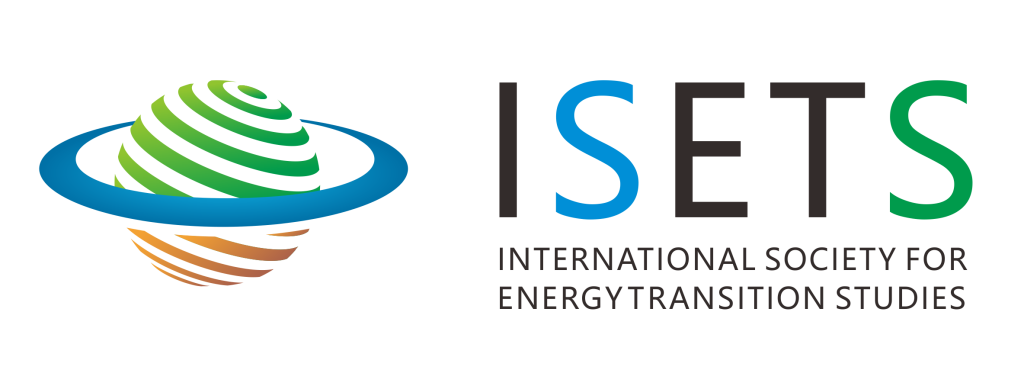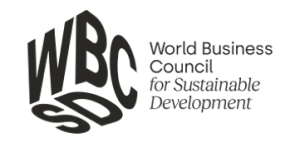
ELECTRIFYING A CLEAN AND SUSTAINABLE FUTURE IN ASIA AND THE PACIFIC
18 June 2024 |
|
|
China, Malaysia & Philippines Time |
17:00-18:30 |
|
Indonesia, Thailand & Vietnam Time |
16:00-17:30 |
|
Australia |
19:00-20:30 |
The Asia-Pacific region finds itself at a pivotal moment in its quest for sustainable development. While economic growth has lifted millions out of poverty and spurred advancements in various sectors, it has also precipitated significant environmental challenges, notably in terms of air pollution and GHG emissions, thus underscoring the unsustainability of the current trajectory.
As nations in the region endeavour to sustain growth and foster prosperity, there emerges an imperative to swiftly embark on a journey towards decarbonising their respective economies. Central to this imperative is electrification, particularly given the significant technological advancements achieved by renewable energy and energy storage technologies, along with the attractiveness of electrification in decarbonising hard-to-abate sectors.
Electrifying a clean future in Asia-Pacific is challenging considering the need for fast growing economies to secure a reliable supply of clean electricity to support their developmental aspirations while advancing decarbonisation agendas. As Asia-Pacific economies grapple with this challenging task, the need for international support and cooperation will increase substantially.
Recognising this, the Breakthrough Agenda has been adopted to close the ‘collaboration gap’ and accelerate international action on climate change to meet the Paris climate goals. Since its launch at COP26, the Breakthrough Agenda has established an internationally-recognised, annual, COP-centred, collaborative process – backed by 57 countries covering over 80% of global GDP, and by over 100 international initiatives – that enhances global cooperation in seven key sectors, including the power sector.
A key outcome of this process is the annual Breakthrough Agenda Report which provides an independent assessment and evidence of the progress made on international cooperation on decarbonising the seven sectors. The goal of the Power Breakthrough is to make ‘clean power the most affordable and reliable option for all countries to meet their power needs efficiently by 2030’ and Priority Actions for 2024 under the Power Breakthrough, provide specific actions to accelerate progress. It is a key delivery mechanism for the COP 28 tripling renewables and doubling energy efficiency pledge, providing an important bridge between Government leadership (with the UK and Morocco as co-chairs) and a community of leading initiatives, with IRENA bringing its experience as sector facilitator.
Against the above backdrop, the International Society for Energy Transition Studies (ISETS), in collaboration with the Climate Champions Team, Breakthrough Agenda Secretariat and Ember are organising this webinar to facilitate an open discussion between non state actors represented by experts from businesses, think tanks, NGOs, financial institutes, and the industry.
The focus of the discussion is on the Asia-Pacific, delving into renewable capacity expansion, grid augmentation, interconnectivity, and efficiency improvement in end-use sectors.
The main objectives of the discussion are:
- To build a stronger shared understanding of opportunities for international collaboration to make low carbon transitions faster, easier, and lower cost in the clean power sector.
- To communicate and build support for the Power Breakthrough Priority Actions amongst regional, national and sub-national actors in the Asia Pacific region.
- To garner insights and feedback from the participants regarding regional developments in the power sector, to inform the Breakthrough Agenda Report 2024 and other relevant discussions.
| Opening session | |
| 17:00-17:10 | Welcoming remarks
– Dr. Xiansheng Sun, ISETS Chairman; former Secretary General, International Energy Forum – Phil MacDonald, Managing Director, Ember |
| Presentation session | |
| 17:10-17:25 | Presentation of the Power Breakthrough
Overview of the Breakthrough Agenda Report and Key Priority Actions to accelerate clean electrification – Dr. Kapil Narula, Senior Analyst, Climate Champions Team Engagement in the Power Breakthrough – Dr. Jennie Dodson, Senior Director, Policy Advocacy & Member Mobilization & Member of the WBCSD Extended Leadership Group, World Business Council of Sustainable Development |
| Discussion session | |
| 17:25-18:05 | Panel Discussion:
Guiding questions:
Possible discussants: – Dr. Yongping Zhai, Senior Advisor, Tencent; former Chief of Energy Sector Group, Asian Development Bank – Dr. Nadhilah Shani, Senior Research Analyst on Power, ASEAN Centre for Energy – Dr. Leow Foon Lee, Senior Research Fellow, Energy Studies Institute – Vibhuti Garg, Director, South Asia, Institute for Energy Economics and Financial Analysis – Fabby Tumiwa, Executive Director, Institute for Essential Services Reform – Tongming Liu, Global Energy Interconnection Development and Cooperation Organization Moderated by Richard Black, Director of Policy and Strategy, Ember |
| 18:05-18:25 | Open discussion
All participants, moderated by Richard Black, Director of Policy and Strategy, Ember |
| 18:25-18:30 | Concluding remarks and next steps
Nathan Cooper, Director of Policy and Engagement, Climate Champions Team |
Electrifying a Clean and Sustainable Future in Asia-Pacific
The Asia-Pacific region stands at a critical juncture in its pursuit of sustainable development, facing the dual challenge of maintaining robust economic growth while addressing significant environmental concerns, particularly those related to air pollution and greenhouse gas emissions. As the region endeavors to sustain its development trajectory, the imperative to decarbonize economies through electrification has never been more urgent. This is particularly true given the advancements in renewable energy and energy storage technologies, which present unprecedented opportunities to transform energy systems.
In response to these pressing issues, the International Society for Energy Transition Studies (ISETS), in collaboration with the Climate Champions Team and Ember, organized a pivotal webinar titled “Electrifying a Clean and Sustainable Future in Asia-Pacific” on June 18, 2024.
Supported by the Breakthrough Agenda and the World Business Council for Sustainable Development (WBCSD), this event brought together a distinguished panel of experts and over 40 participants from various sectors, including businesses, think tanks, NGOs, financial institutions, and the industry, to foster an open discussion on the strategies and collaborations necessary to accelerate clean electrification in the region.
Highlighted Speakers and Organisers
- Dr. Xiansheng Sun: Chairman of ISETS and former Secretary General of the International Energy Forum, delivered the welcoming remarks, setting the stage for a thought-provoking discussion.
- Phil MacDonald: Managing Director of Ember, also provided opening remarks, emphasising the importance of international cooperation in achieving a sustainable future.
- Dr. Kapil Narula: Senior Analyst at the Climate Champions Team, presented the Power Breakthrough, offering insights into the Breakthrough Agenda Report and the key priority actions needed to accelerate clean electrification.
- Dr. Jennie Dodson: Senior Director of Policy Advocacy at the World Business Council for Sustainable Development, engaged participants in the Power Breakthrough, highlighting global efforts to drive sustainable energy transitions.
- Richard Black: Director of Policy and Strategy at Ember, moderated the panel discussion, guiding a diverse group of experts through key questions on the feasibility and opportunities of electrifying a clean future in the Asia-Pacific region.
Key takeaways
The clean energy transition is beneficial, and accelerating its progress is critical for realising these benefits
A deep and rapid transition towards locally-produced clean energy can contribute to affordable and resilient energy supply – essential for economic prosperity and social well-being. To achieve these benefits, accelerating the progress of the transition is necessary. This involves not just setting more ambitious targets for renewable energy deployment and end-user efficiency improvement, but also creating actionable plans to turn climate ambitions into actual progress.
Electrification is central to the transition towards a clean energy future
This requires technological innovations and investment, sound policy and effective implementation, and collective actions among governments, industries and communities. Significant efforts are also needed in the industrial and transport sectors to support efficiency improvement and electrification.
Understanding Asia-Pacific’s local contexts is key to translating global initiatives into regional and national actions
This involves not only more effective knowledge sharing but also fostering strong stakeholder engagement. By actively involving local communities, policymakers, businesses, and civil society, a better understanding of the unique cultural, socio-economic and energy contexts can be developed to adapt global initiatives into practical, on-the-ground solutions that are more actionable and inclusive.
International think tanks and multilateral organisations play a vital role in supporting stakeholder engagement
They serve as a knowledge hub that synthesises diverse perspectives and opinions into pragmatic policy suggestions for decision-makers to consider. This collaborative approach helps bridge the gap between global goals and local realities, ensuring sustainable and effective implementation of initiatives across the Asia-Pacific region.
Beyond tripling renewable energy
Supporting a rapid deployment of renewable generation involves creating a favourable environment conducive to private investment, as well as augmenting network and energy storage infrastructure. It also entails localising the manufacturing and assembly of renewable energy equipment and facilities, thereby creating jobs, and adding values in host countries.
Supporting technological breakthrough
This is essential to bring promising yet commercially unviable technologies to market. This can be facilitated through demonstration projects, supported by grants from multilateral development banks (MDBs) and development partners, along with ESG investments from large corporations. These initiatives will help bridge the gap between innovation and market readiness, accelerating the adoption of cutting-edge technologies.
Regional power connectivity is pivotal for advancing towards a clean electricity future
It facilitates more efficient use of renewable energy resources and promotes energy security across participating countries, leveraging the complementarity of abundant and diverse renewable energy sources across the Asia-Pacific region. To deepen power connectivity, it is important to enhance dialogue and stakeholder engagement, in order to foster consensus and find common ground through strategic accommodation.
Achieving deeper power connectivity requires more effective management of geo-strategic and cybersecurity issues
Diversifying sources of electricity supply can serve as an effective hedge against these risks. This includes importing electricity from multiple sources and establishing resilient domestic supplies, such as rooftop solar PV, green hydrogen infrastructure, battery storage facilities, and nuclear energy.
Policy leverage points
Even with a clear and well-defined technical transition pathway, actual progress faces significant socio-economic, and hence, political challenges, particularly in major fossil fuel-producing countries. Sufficient financial support can be an effective leverage point for phasing down coal power assets, creating additional demand for renewable generation. Additionally, solutions are needed to address deeply entrenched fossil fuel interests and eliminate fossil fuel subsidies. It is also important to demonstrate the positive impact of renewable energy on electricity affordability and supply security. This approach can help garner public support for expanding renewable energy applications more broadly.






